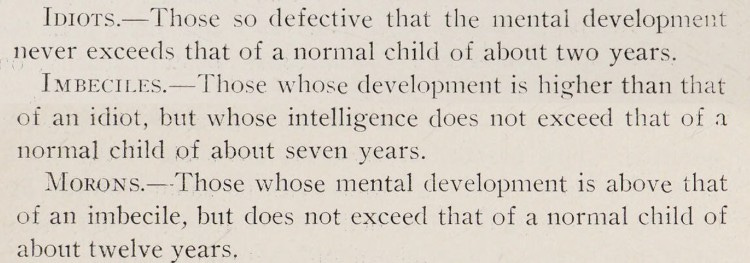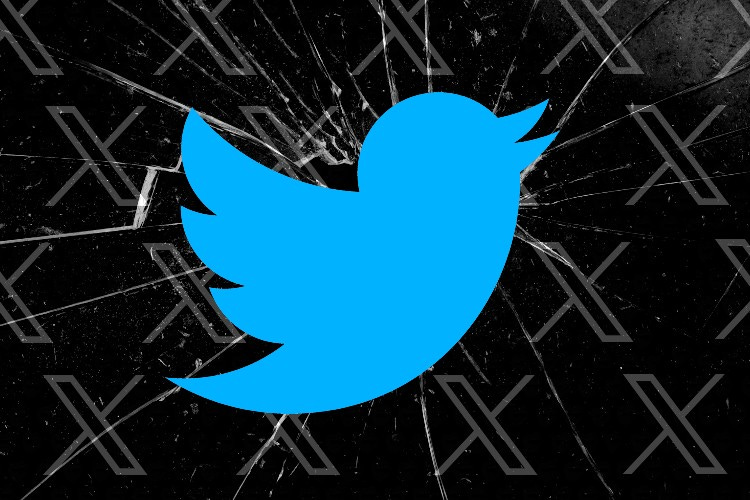
I was refurbishing old boats on a beach in Mexico. As I sanded the barnacles off of a 1920s plywood skiff, I spotted a figure walking towards me along the surf. I shaded my eyes…could it possibly be? My God…yes, it was! It was the word “retard”! I thought I would never see my old friend again! But here we were, embracing on the beach, reunited after all these years!
Maybe you’ve noticed: People are saying “retard” again. I’ve seen it in tweets, I’ve heard it in casual conversation — I’ve heard it from young people, which is a real about-face for a generation that recently wasn’t sure if words like “brownie” and “field” were okay.
I’ll confess: I’m thrilled that “retard” is back. I really missed it. I am, after all, a political comedy writer working during the Trump era who has been forced to use adjectives for Trump like “ninny” and “fool”. Those words are underpowered — using them feels like falling into a grain thresher and yelling “drat!” Donald Trump is a fucking retard, that’s the English word for what he is, and using it for the first time on this blog feels empowering.
But is it good that “retard” is back? We should have this conversation. And it should start with all of us agreeing that we should absolutely not mock or otherwise lessen disabled people. I grew up in the ‘80s, so I remember when mocking disabled people was socially acceptable — I remember Helen Keller jokes and shockingly misguided Jim Belushi movies, and we can’t go back to that. But one of the reasons why I resented “retard” being taken away is that it just suddenly happened — it was raptured from our dialogue with no explanation or debate. So, let’s have that debate now.
I think that “retard” and its variants should be allowed because the word has a non-literal use that has nothing to do with mentally disabled people. That’s key: It does not mock mentally disabled people — it mocks ideas and people who are lacking due purely to their own ignorance. Non-literal uses are common in English; we use words like “luddite”, “Neanderthal”, “barbarian”, “maverick”, “plebeian”, “narc”, “chauvinist”, “zealot”, and “dunce” to refer to behaviors, even though those words are derived from groups of people. If I call my friend a “luddite”, I don’t mean that he’s a 19th century textile worker furious about the mechanical knitting machine; I mean that he needs to get on Venmo, and I don’t think there’s much confusion about that.
Some of the most common non-literal uses of words happen to be the words that replaced “retard”. For more than a decade now, I’ve been substituting words like “idiot”, “moron”, and “imbecile” for “retard”, even though the recent literal meaning of those words refers to a classification system for mentally disabled people.1 This is from the book Backward and Feeble-Minded Children, written by Edmund Burke Huey in 1912:
That’s what those words literally mean. But when I call Trump an “idiot” — which I have done millions if not billions of times — nobody gets mad, because they know I don’t mean “a person whose mental defects cause them to lack the cognitive development of a two year-old.” They know I mean “a guy so comfortable in his self-imposed ignorance that he misunderstands his own policies and rants about immigrants eating cats and is generally just dumber than a bucket of pig dicks.”
If I were to call Trump a “retard”, it would be the same usage; any reasonable person would know that I don’t literally mean a mentally disabled person. That distinction is even more clear if I call an idea “retarded” — there are several layers of abstraction between that use and the word’s literal meaning. Most of the words we have that mean “not smart” — e.g. dumb, stupid, fool — have some connection to physical disability.2 We accept those words being used due to a common-sense rule that basically says: “It’s clear what the user means based on context.” So, why isn’t “retard” covered by that same rule?
You might wonder why I care. I could just keep using “idiot” and “moron”, like I have for a long time. The problem is that the replacement words aren’t as good — idiot and moron are a light beer when I need a shot of straight whiskey. I’m reminded of a standup show I once did where the booker told me after I arrived that I had to be 100 percent clean; her assumption was that I could just say “frig” instead of “fuck”, and the jokes would land the same. Of course, that’s not true: “Fuck” is a useful comedy word because it’s maximalist — it’s the strongest option on the shelf. “Retard” is the same, and I can’t keep imbibing this weak-ass shit and telling myself that it’s just as good.
That’s my case as to why “retard” should be allowed. If you think it shouldn’t be allowed, I’d like to hear your argument — the comments section is open. I hope that this can be a good faith discussion among people who agree that we should find ways to allow personal expression without insulting those among us with different development. At the very least, it will be a discussion, which we haven’t really had until now.
The more complicated history is that those words have been around for centuries and have meant different things at different times.








I can only quote myself, from Twitter, a week or so ago: "I have a special needs child. If anyone used that term specifically on my son I'd want to punch them in the face. But I use it myself all the time these days, because quite frankly our national politics has become completely retarded and we need that word back to say so."
( https://x.com/EsotericCD/status/1844893027396972742 )
“Retard” and “retarded” hit harder than their inferior replacements because they’re full of hard consonants. It’s the same reason that if a punchline mentioned a car, you’d say “Buick” instead of “Nissan.” They’re just phonetically funnier.